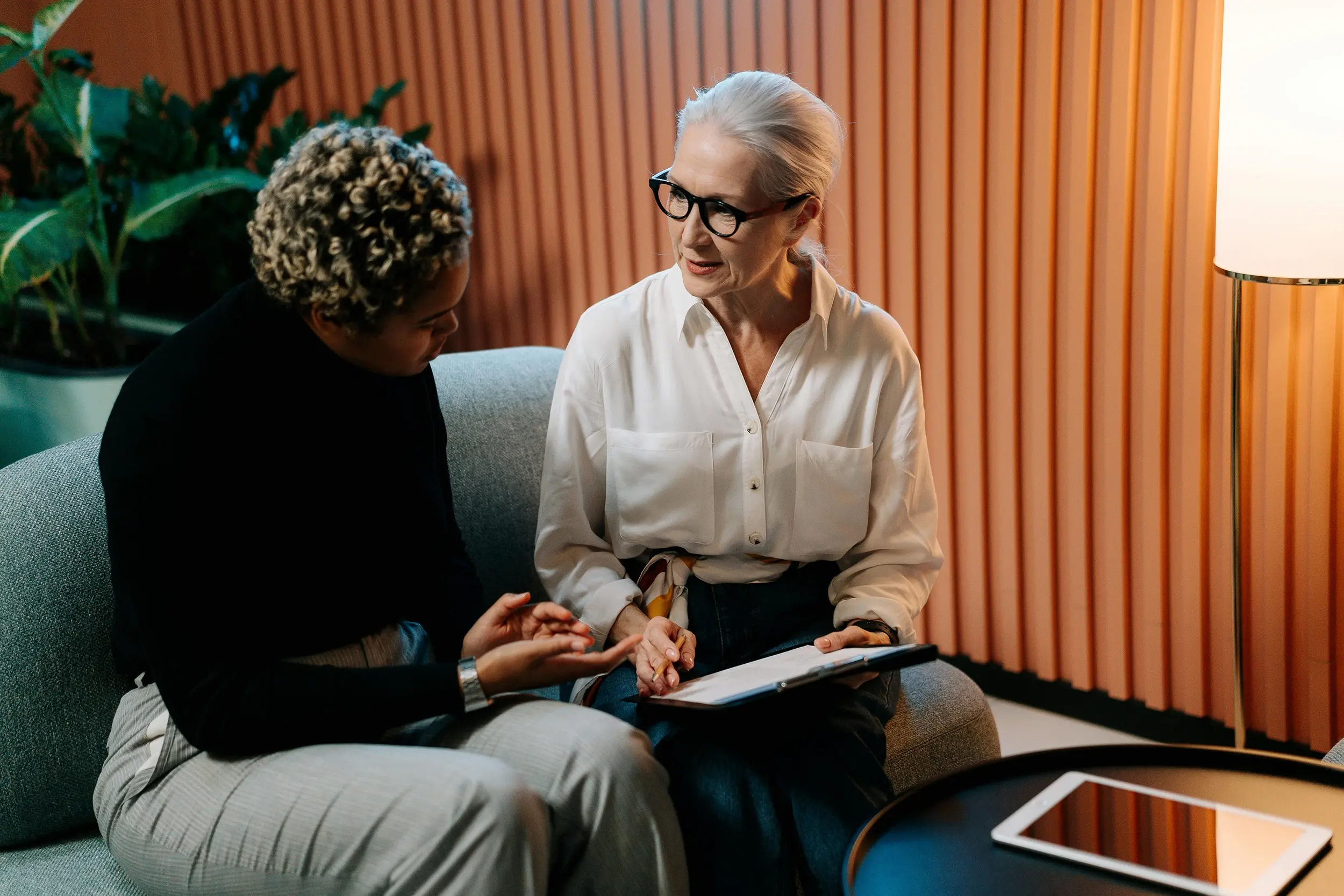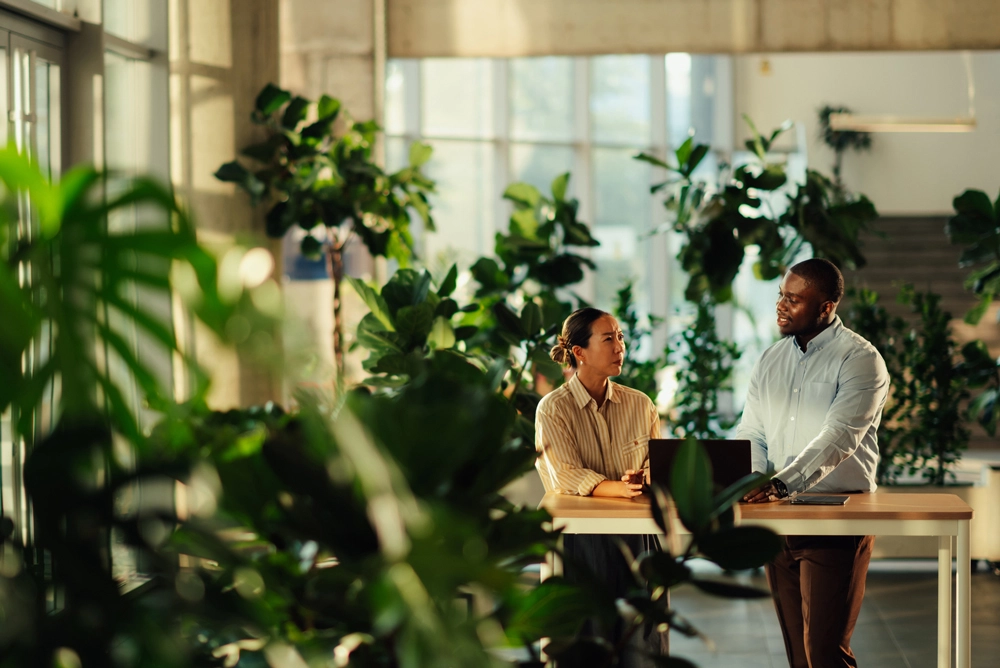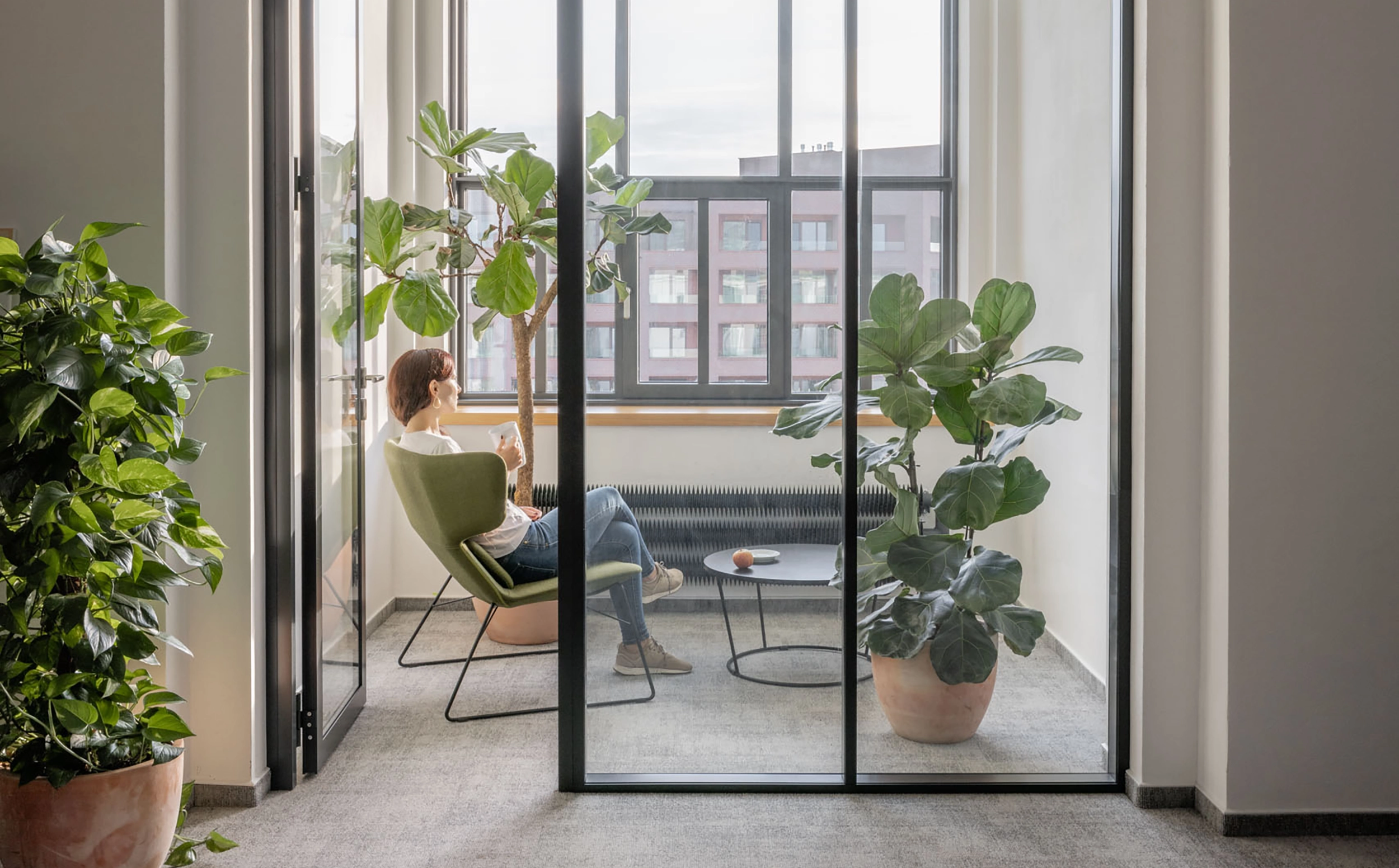As global titans like Amazon hit snags with desk shortages and hybrid mandates crumble, Giant Leap, one of South Africa’s premier workplace design consultancies, is rolling out a bold fix: the ‘hotelification’ of the office. Think rooftop terraces, on-site gyms, branded soap, and a vibe that rivals a luxury hotel stay.
“It’s not just a trend—it’s the key to reviving South Africa’s office culture,” said Linda Trim, Director at Giant Leap, one of South Africa’s leading office design consultancies.
“Hybrid working’s clock is ticking—KPMG’s CEO survey shows83% of leaders want everyone back five days a week within three years,” Trim said.
South African offices have a unique DNA.
From the sprawling corporate towers of Sandton to the gritty start-up lofts of Braamfontein, they’ve long been places where hard work meets a sociable streak. Pre-pandemic, open-plan spaces buzzed with impromptu chats and Friday sundowners, reflecting a workforce that values connection as much as output. But remote work flipped the script—Zoom replaced the watercooler, and employees got cozy with flexibility.
Now, high performers, especially in tech hubs like Cape Town or legal firms in Pretoria, guard that autonomy fiercely.
“These are your stars, your mentors, your deal-closers, ”Trim explained. “They’ll bolt if the office feels like a step back. We need to offer them a premium experience that beats the lounge and justifies the trek.”
Giant Leap’s answer? Take a page from the hotel playbook and make offices irresistible.
“South African workplaces need to feel like a getaway, not a grind,” Trim asserted. “We’re designing spaces with integrated cafés serving flat whites, full shower suites for post-gym fresh-ups, and rooftop gardens with Jozi or Cape views that turn a lunch break into an event. Picture kicking off your day with a workout downstairs, grabbing a bite on-site, and winding down with colleagues under the Highveld sky. That’s the kind of pull that trumps traffic on the N1.”
Location is a game-changer too.
Giant Leap is nudging clients toward vibrant nodes like Sandton, Rosebank, and the V&A Waterfront, where offices sit amid social hubs—think artisanal markets, rooftop bars, and galleries. “It’s about stitching work into a fuller day,” Trim said.
Trim draws inspiration from global pacesetters.
“London’s 21 Bloomsbury Street—an 85,000 sq ft gem—boasts a rooftop clubhouse, gym with live-streamed classes, and towel service,” she noted. “Or 20 Kirby Street in Farringdon, where soft lighting and cozybreak-out zones mimic home. We’re bringing that flair here—flexible layouts, top-notch finishes, and tech-savvy spaces that ditch the hot-desking flops South Africans loathed. Workers hated fighting for a desk; now, they want choice and comfort.”
The shift is tectonic—and urgent.
South Africa’s office culture is at a tipping point: pre-COVID density gave way to de-densified designs, but too many spaces still feel sterile.
“It’s not just about adding a ping-pong table,” Trim insisted.
“We estimate over 50% of workers are still resisting regular office time. Our fix is premium, hotel-inspired spaces that deliver for individuals and teams. Get this right, and you’ll keep your top talent, fire up your newbies, and future-proof your business. Get it wrong, and you’re just another empty floorplan,” Trim concluded.






